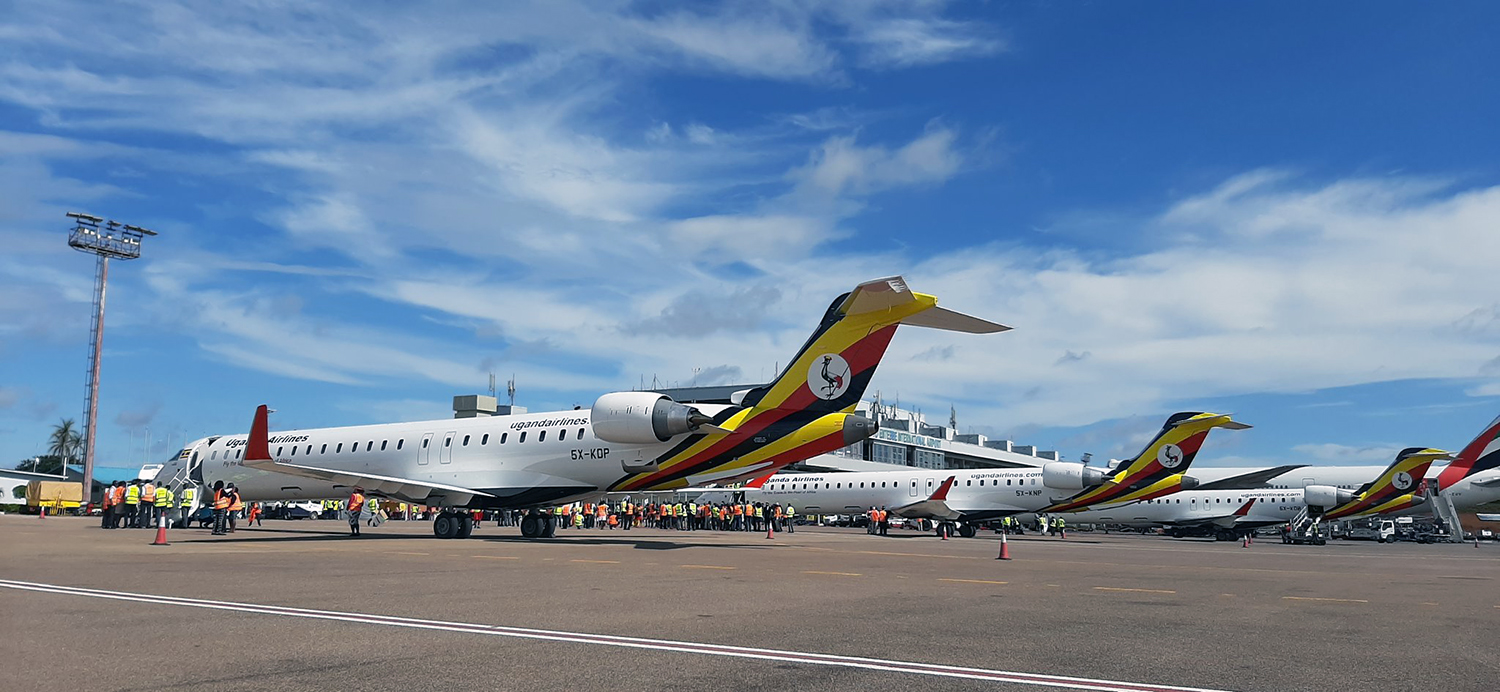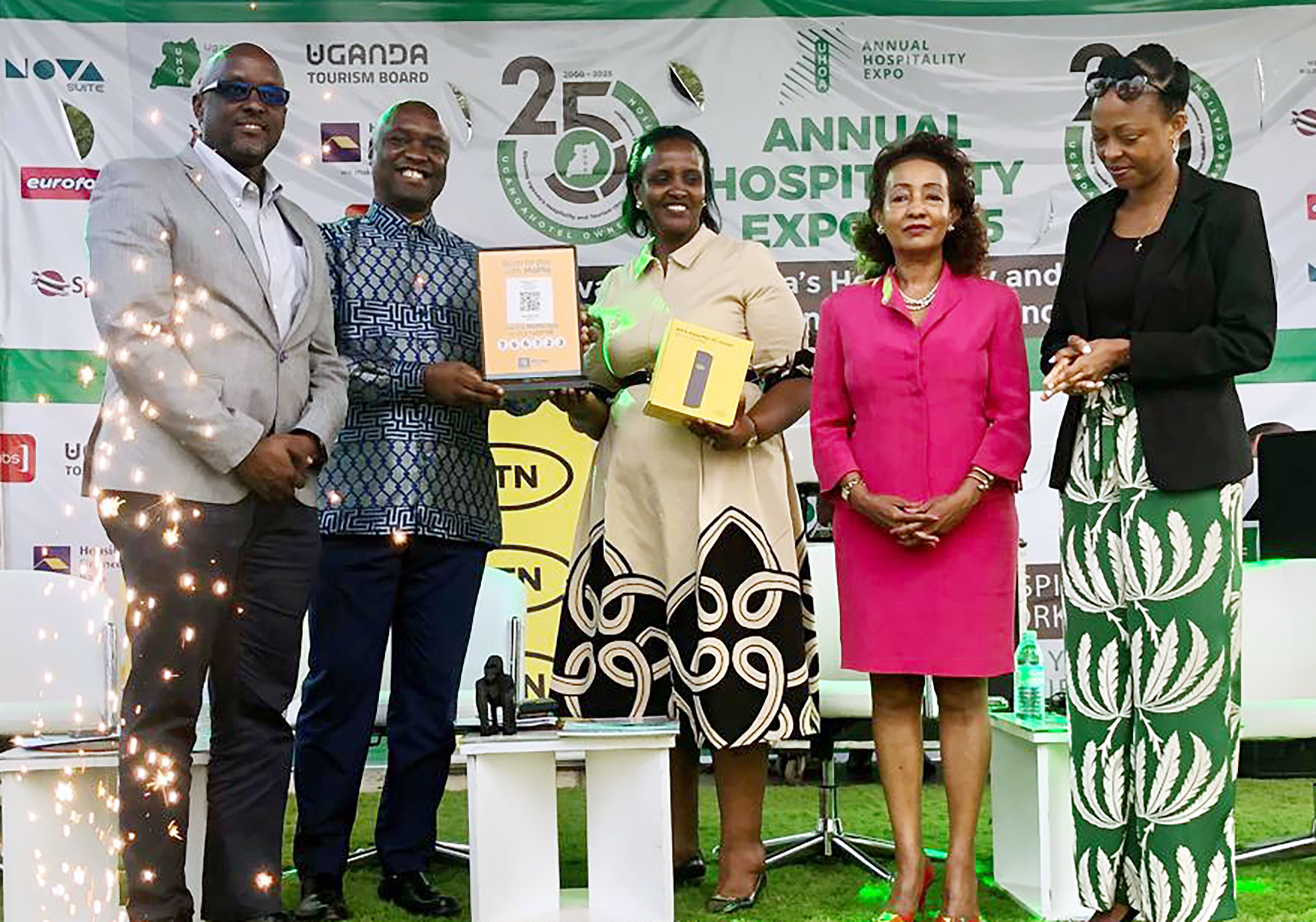Uganda Airlines boss cautions suppliers on quality

HIGH-END: Some of the new Uganda Airlines jets at Entebbe Airport.
Local suppliers have been urged to adhere to international quality standards if they are to benefit from the business opportunities available at the Uganda Airlines Corporation.
Jennifer Bamuturaki, the Uganda Airlines chief executive officer, was responding to complaints from local suppliers that the corporation was mainly sourcing from foreigners at the expense of the local producers and suppliers.
Speaking to a cross section of local suppliers at the Supplier Forum held under the theme; "Harnessing Supply Opportunities to Drive Procurement Excellence," Bamuturaki said aviation is a highly regulated industry, and no airline can compromise on the requisite international standards for any reason.
- "We are constrained by inconsistency and lack of sustainability and compliance to international standards," Bamuturaki stated.
She added that this inconsistency in local supply chains is what is forcing the airline to look elsewhere for reliable products of the highest quality, but quickly added that their supplier base has continued to grow as standards improve.
“The Uganda Airlines’ supplier data base has grown to 200 suppliers in our five years of existence and over UGX120 billion has cumulatively been injected into the macro economy for local contractors,” Bamuturaki added.
- Uganda has an elaborate legal framework to support local content. For example, the Public Procurement and Disposal of Public Assets Act, 2003 (as amended), which governs public procurement in the country, includes provisions that support local content initiatives by promoting the participation of Ugandan businesses in government procurement processes.
 STEADFAST: CEO Bamuturaki told suppliers that the aviation industry must comply with stringent international standards.
STEADFAST: CEO Bamuturaki told suppliers that the aviation industry must comply with stringent international standards.Experts say that local content is important to national development as it stimulates economic growth by creating opportunities for local businesses to participate in sectors that are traditionally dominated by foreign companies, which consequently fosters a more resilient and sustainable economic base.
Bamuturaki, however, noted that compliance with high quality standards is non-negotiable in their industry, using the example of the airline’s uniforms that are currently being procured from foreign suppliers, after the airline failed to find a local supplier that would consistently comply with the requisite standards of quality.
To meet Uganda Airlines' requirements, local suppliers must adhere to several international standards, including that of Quality Management Systems (ISO 9001), standards that ensure that products and services consistently meet sensitive customer requirements, the Food Safety Management standard (ISO 22000), among others.
For suppliers to meet these stringent requirements, Bamuturaki suggested that they must invest in training and capacity building programs as well as working with certification bodies and industry experts.
- She added that suppliers also need to regularly review and improve on their systems and processes.
- Linet Laila, the Innovations Manager at African Queen Ltd, a local supplier, echoed Bamuturaki’s sentiments, and called for more opportunities to interact with procuring entities and regulators.
"The forum we have had was beneficial as we have been able to interact with the officials from Uganda Investment Authority and URSB, who have guided us on what to do," she noted.
With its fleet of several brand-new jets, Uganda Airlines flies several routes within Africa and has been gradually expanding its network to destinations in Asia, China and Europe.

























